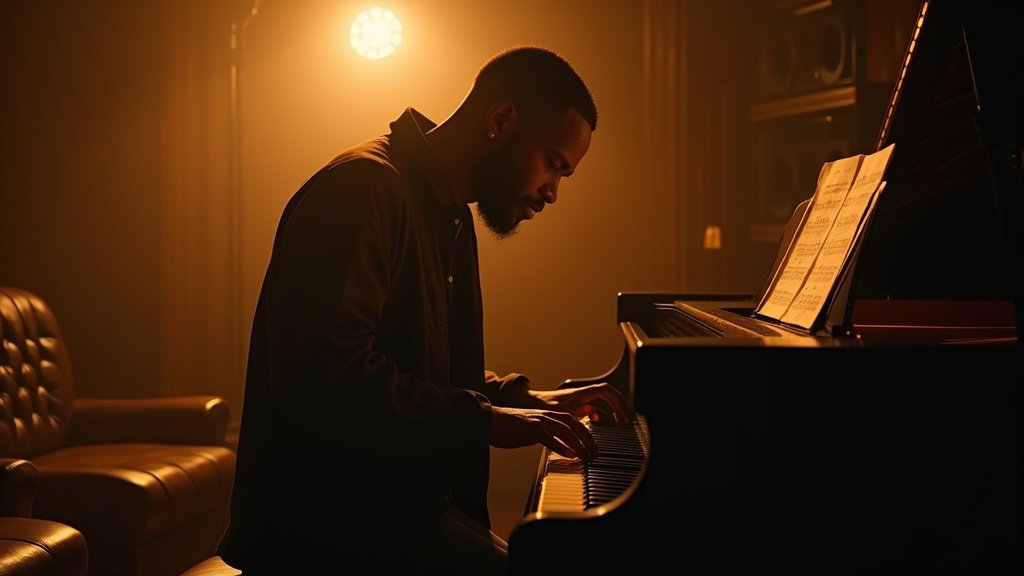Grammy-winning R&B artist D’Angelo, a transformative figure in neo-soul and a celebrated multi-instrumentalist, has died at the age of 51. His family confirmed the heartbreaking news on Tuesday, October 14, 2025, stating that the iconic singer passed away after a prolonged and courageous battle with pancreatic cancer.
Known to fans worldwide as D’Angelo, and born Michael Eugene Archer, he was a true innovator whose music redefined contemporary R&B and soul. His death marks a significant loss for the music industry and countless fans who found solace and inspiration in his artistry. The news quickly began trending across social media platforms, highlighting the profound impact he had on music and culture.
A Life Dedicated to Sound
Born in Richmond, Virginia, on February 11, 1974, D’Angelo’s musical journey began at an exceptionally young age. Raised in a devout Pentecostal household, with his father serving as a minister, his early exposure to gospel music deeply informed his developing sound. He began playing the piano at just three years old, a testament to his innate musicality. By his teenage years, he was already writing music and performing locally. In 1991, at 17, he achieved a notable early success by winning Amateur Night at Harlem’s Apollo Theater with his group, Michael Archer and Precise. This victory spurred his move to New York City at 18 to fully pursue a career in music, signing with EMI Records shortly after. His first significant commercial success came in 1994 when he co-wrote and co-produced the hit single “U Will Know” for the R&B supergroup Black Men United.
The Neo-Soul Architect
In 1995, D’Angelo emerged as a leading voice of a new musical movement with his debut album, Brown Sugar. This seminal work, celebrated for its seamless blend of classic R&B melodies, jazz harmonies, and hip-hop rhythms, is widely credited with defining the nascent neo-soul genre. The album, featuring hits like the title track, “Lady,” and “Cruisin’,” was a critical and commercial triumph, earning platinum certification and establishing D’Angelo as an artistic force.
His sophomore album, Voodoo, released in 2000, further solidified his legendary status. Recorded with members of the acclaimed Soulquarians collective, including Questlove and J Dilla, the album was lauded for its dense, organic instrumentation and laid-back, yet deeply soulful, groove. The lead single, “Untitled (How Does It Feel),” became a cultural phenomenon, amplified by its evocative and intimate music video. The song earned him a Grammy Award for Best Male R&B Vocal Performance, while Voodoo itself secured the Grammy for Best R&B Album. However, the intense fame and the sexualized reception of his image following Voodoo led D’Angelo to withdraw from the spotlight, grappling with personal struggles.
Resilience and Return
After a period marked by personal challenges, including struggles with addiction, D’Angelo made a triumphant return in 2014 with his third studio album, Black Messiah. Released in the wake of national protests, the album was a politically charged and musically complex masterpiece that earned widespread critical acclaim and another Grammy for Best R&B Album. This return demonstrated his enduring artistic vision and his commitment to making music that was both profound and relevant.
A Legacy of Influence
D’Angelo’s career, though marked by only three studio albums over three decades, left an indelible mark on the music landscape. He won a total of four Grammy Awards and received 14 nominations throughout his career. His meticulous musicianship, uncompromising artistic integrity, and ability to blend genres have inspired a generation of artists, including Frank Ocean, H.E.R., Anderson .Paak, and SZA. He was lauded not just for his voice, but for his deep understanding of musical history and his innovative spirit, which allowed him to push the boundaries of R&B, funk, soul, and jazz. Despite his often reclusive nature, his influence was palpable, setting trends that continue to resonate today, far beyond the usual hollywood hype.
Family’s Heartfelt Tribute
In a statement released following the confirmation of his death, D’Angelo’s family expressed their profound grief. “The shining star of our family has dimmed his light for us in this life,” they shared. “After a prolonged and courageous battle with cancer, we are heartbroken to announce that Michael D’Angelo Archer… has been called home.” The family added, “We are saddened that he can only leave dear memories with his family, but we are eternally grateful for the legacy of extraordinarily moving music he leaves behind.” They requested privacy during this difficult time but invited fans worldwide to join them in mourning his passing while also celebrating his monumental gift of song.
A Lasting Echo
Michael Eugene Archer, known universally as D’Angelo, leaves behind a legacy that transcends chart success. He was an artist who prioritized craft, soul, and authenticity, shaping the sound of modern music and influencing countless artists. His passing is a somber moment for the music world, but the echoes of his revolutionary sound will continue to inspire and move listeners for generations to come. This news serves as a poignant reminder of his extraordinary talent and the enduring power of his music.





